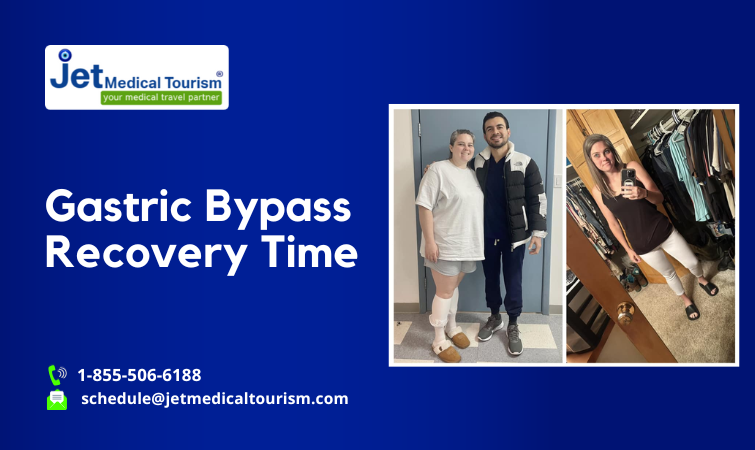Can I Live a Normal Life After Gastric Sleeve?
Gastric sleeve surgery is one of the most popular and effective weight loss procedures available today. For individuals struggling with obesity, it offers a new lease on life by significantly reducing weight and improving overall health. However, many prospective patients ask, “Can I live a normal life after gastric sleeve?” This is a valid concern, as bariatric surgery brings lifelong changes.
This article will cover everything you need to know about life after gastric sleeve surgery, including eating habits, social life, physical activity, long-term health effects, and mental well-being. We’ll also discuss whether people truly feel happy after the surgery and how life transforms post-operation.
Understanding Gastric Sleeve Surgery
Gastric sleeve surgery is a minimally invasive weight loss procedure that removes about 75-80% of the stomach, leaving behind a sleeve-shaped stomach. This significantly reduces food intake and alters hunger hormones, particularly ghrelin, the hormone responsible for hunger.
Key Benefits of Gastric Sleeve Surgery
- Significant weight loss (60-70% of excess weight within a year)
- Improved or resolved obesity-related conditions (diabetes, hypertension, sleep apnea)
- Better mobility and physical activity
- Enhanced mental well-being and self-confidence
However, this procedure requires lifestyle changes for long-term success. Let’s explore what life looks like post-surgery.
Do You Ever Go Back to Normal After Gastric Sleeve?
The definition of “normal” changes after gastric sleeve surgery. While you may not eat the same way as before, you can still enjoy a fulfilling and healthy life. Here’s how different aspects of life will evolve:
Eating Habits: Will I Ever Eat Normally Again?
One of the most common concerns is, “Will I ever eat normal after gastric sleeve?” The answer depends on your definition of normal. While portion sizes will be smaller, you can still enjoy a wide variety of foods, including your favorites.
Post-Surgery Eating Timeline
- Week 1-2: Liquid diet (broths, protein shakes, clear fluids)
- Week 3-4: Pureed foods (mashed vegetables, soft proteins like scrambled eggs)
- Week 5-8: Soft solid foods (lean meats, fish, cooked vegetables, yogurt)
- Beyond 2 months: Gradual reintroduction of regular solid foods in small portions
Your stomach’s new size requires mindful eating habits, including:
- Eating slowly and chewing thoroughly
- Avoiding overeating (as the stomach can only hold 3-5 ounces at a time)
- Prioritizing proteins and nutrient-dense foods
- Drinking fluids between meals, not during
While certain foods (high-fat, sugary, and carbonated drinks) may cause discomfort, many patients adapt to a healthier version of normal eating over time.
READ: Gastric Sleeve Regrets
Social Life and Dining Out
Many fear that weight loss surgery will affect their social life, particularly dining with family and friends. The truth is, you can still enjoy social events, but with a few mindful adjustments:
- Order smaller portions or share meals
- Focus on protein-rich and healthy options
- Eat slowly and savor your food
- Communicate with loved ones about your dietary needs
Most people are supportive, and you’ll find that social gatherings can still be enjoyable without overindulging.
Physical Activity: Can I Be Active After Gastric Sleeve?
Exercise plays a crucial role in maintaining weight loss after gastric sleeve surgery. Within a few weeks post-surgery, patients can gradually increase activity levels.
Exercise Progression After Gastric Sleeve
- Week 1-4: Light walking (5-10 minutes daily)
- Month 2-3: Low-impact exercises (yoga, swimming, stationary cycling)
- Month 4 and beyond: Strength training, cardio, and more intensive workouts
Many patients experience increased energy levels, making it easier to stay active and incorporate fitness into daily life.
Mental Health: Are People Happy After Gastric Sleeve?
Studies suggest that most patients experience improved mental health due to weight loss, increased mobility, and enhanced self-esteem. However, it’s important to address emotional adjustments:
- Some individuals face body image issues even after losing weight
- Emotional eating triggers must be managed through therapy or support groups
- Support from family, friends, or counseling can aid in the transition
A study published by the Journal of Obesity found that bariatric patients reported higher quality of life and reduced depression after surgery (source).
Long-Term Health Effects
Gastric sleeve surgery significantly reduces obesity-related health risks, such as:
- Type 2 diabetes remission rates as high as 80%
- Decreased risk of heart disease, stroke, and hypertension
- Improved joint health and reduced arthritis symptoms
- Better sleep quality, with many patients no longer needing CPAP machines for sleep apnea
A study from the American Society for Metabolic and Bariatric Surgery reports that gastric sleeve patients have a 30-50% lower risk of premature death compared to those who remain obese (source).
Will Gastric Sleeve Surgery Affect My Lifespan?
Gastric sleeve surgery has been associated with longer life expectancy due to reduced obesity-related illnesses.
According to a study published in The New England Journal of Medicine, bariatric surgery was linked to a longer life expectancy compared to standard obesity management in patients with obesity.
Gastric Sleeve Success Stories from Jet Medical Tourism Patients
Our patients have shared powerful transformations after undergoing gastric sleeve surgery in Tijuana with our experienced bariatric team. Here are just a few of their stories:
Tedda — Gastric sleeve results after 3 years
“I can Walk, Skate, Dance, take the stairs & anything else I want to do. Thank you Dr. David Vasquez & Jet medical for giving me back my life ”
Dayanna Lynee Robinson — Gastric sleeve results after 3 years
“No complications. No regrets!
”
Marilyn Hernandez — Gastric sleeve results after 1 year
“A year later. Down 112 pounds and no more diabetes problems.”
Conclusion
Yes! While some adjustments are necessary, gastric sleeve surgery allows you to live a healthier and more fulfilling life. With improved health, energy, and confidence, many patients consider it one of the best decisions they’ve made.
If you’re considering gastric sleeve surgery in Tijuana, Mexico, Jet Medical Tourism is here to help. We offer affordable, high-quality bariatric surgery options with experienced surgeons and excellent post-operative care. Contact us today to learn more about how we can help you achieve a healthier future!





